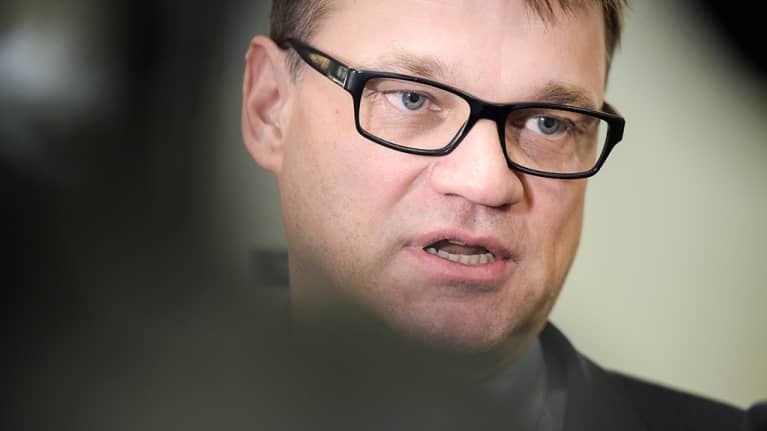Prime Minister Juha Sipilä is said to be mulling significant changes to the government’s current policies governing its ownership in and steering of state-owned companies. Yle has obtained information that suggests that Sipilä has outlined a series of reforms that could see the government sell off its stake in some holdings and re-organise ownership in others.
Yle understands that also on the table is a plan to split the postal group Posti into two and to partly privatise the organisation – in other words to sell off a chunk to private investors.

Daily Helsingin Sanomat first reported on the fledgling plans two weeks ago. At the time Sipilä denied the reports in an interview with STT news agency. However Yle’s sources have confirmed that some options have already been floated.
Also under consideration is a proposal to reduce the state’s stake in national air carrier Finnair to 50 percent from the current 55.8 percent shareholding.
However the government still wants to ensure that domestic ownership in the airline remains above 50 percent. That’s because an important condition of the bilateral overflight agreement between Finland and Russia is that majority ownership in Finnair should be domestic. However that does not necessarily mean the majority stake should be in state hands.
Sipilä has said that the government will disclose its ownership policy reform plans on May 17. Yle has gathered information from different sources about the options that the Prime Minister has outlined or considered.
Neither Sipilä nor his aides have offered any comment on the alleged changes.
Wider role for state-owned industrial investment company
Yle’s sources have suggested that Sipilä has already reviewed the proposed reforms with different interest groups. Additionally, Centre Party ministerial heavyweights Anne Berner and Olli Rehn have had central roles in helping to formulate the changes.
The premier has also canvassed opinions on the plans from his business network.
Yle information indicates that the government wants the state-owned Finnish Industry Investment Ltd to play a larger role in its ownership policy. The organisation is a fully state-owned venture capital and private equity investment firm that focuses on the industrial sector.
It particularly invests in companies seeking growth and internationalisation, either directly or via investment funds. Sipilä’s model thus envisions a greater role for the company helping businesses fund growth and expansion.
Sipilä has sketched out a model in which the investment company will be allowed to take on greater risk. Government would also boost capitalisation of the organisation. That funding would likely come from the profits generated by selling off some of its holdings.
Putting government money to work
Yle understands that the government has also discussed a model in which it would gather equity from Finns in a kind of national community effort aimed at generating growth. The effort would target pension funds as well as private investors.
However there could be some opposition to enlisting pension funds. Pension fund managers generally want investment opportunities that promise the best possible return and they are reluctant to get involved in politically-motivated financial investments.
Last year Sipilä promised to "put the state’s balance sheet to work". Then a freshly-minted premier, he said the government would organise a strategic investment of 1.6 billion euros. At the time he promised that the goal would be realised without taking on additional debt or hiking taxes.
Yle’s sources suggested that the current revamp of ownership policy would see the strategy finally put into action with the PM aiming at setting up a two billion-euro investment package.
More money for Talvivaara?
The environmental and financial travails of now state-owned mining outfit Talvivaara also came up for discussion during the PM’s deliberations, Yle understands. The government now owns Talvivaara via a company especially set up for the purpose, Terrafame.
Taxpayers forked out nearly 250 million euros for Terrafame to acquire and operate the ailing mining concern shortly after it filed for bankruptcy last year.
Back in February, Yle reported that the mining operation was already running low on cash. According to sources, government has concluded that Terrafame needs considerably more financing that previously discussed in public – hundreds of millions of euros, in fact.
Moreover a decision by the Vaasa administrative court to convert the Sotkamo mine’s environmental permit to make it temporary and to tighten related conditions have complicated efforts to find private investors for the project, and has put greater pressure on the state to stay in the picture.
However spending more taxpayers’ money on the flagging concern is a political tinderbox and some cabinet members even support a plan to wind down the operation.
Strings in Sipilä’s hands
A former entrepreneur and chief executive and as minister responsibile for ownership steering, Juha Sipilä has played a significant role in framing the set of policy reforms. Currently the Finnish state is majority owner of more than 40 companies. It also has a major stake in another 18 stock-listed firms, managed by the state-owned investment holding company Solidium.
In April Helsingin Sanomat reported that Sipilä had been personally reviewing the balance sheets and financial statements of state-owned companies.
State holdings are quite a mixed bag and include everything from the alcohol manufacturer Altia to the heavy equipment maintenance company Raskone and the publisher Nordic Morning. Other state holdings operate in sectors in which it is difficult to see any strategic value.
In addition to Sipilä’s core team, a nine-member group of government MPs has been pondering the future of ownership policy. Their findings are to be tabled in Parliament on May 17.
Government plans to first outline the broad strokes of its reforms to ownership policy, while decisions on the fate of individual state-owned companies will follow later on.
